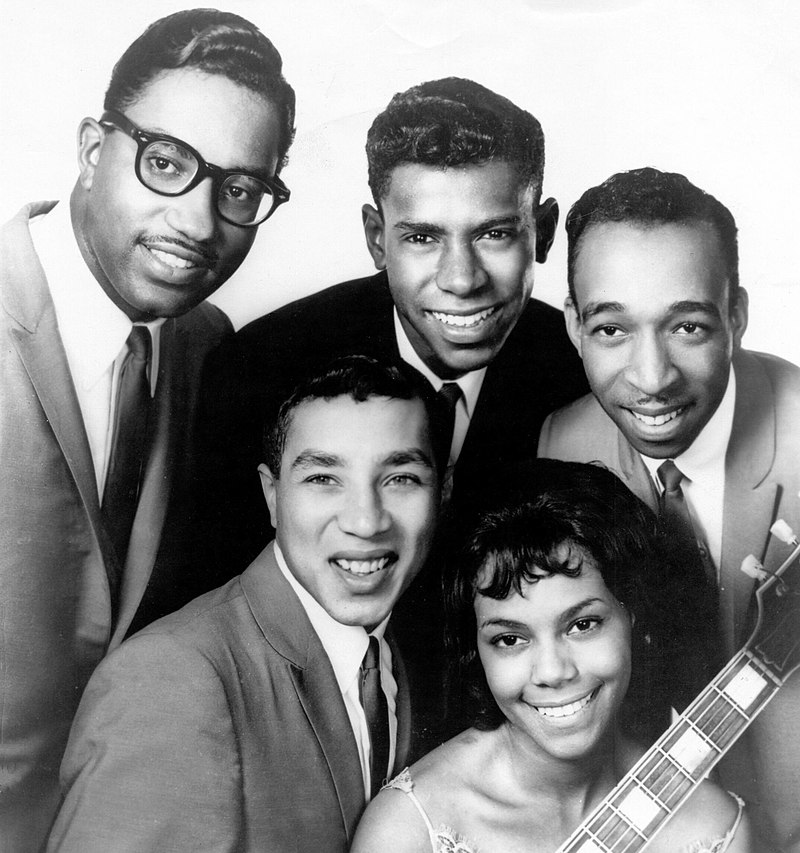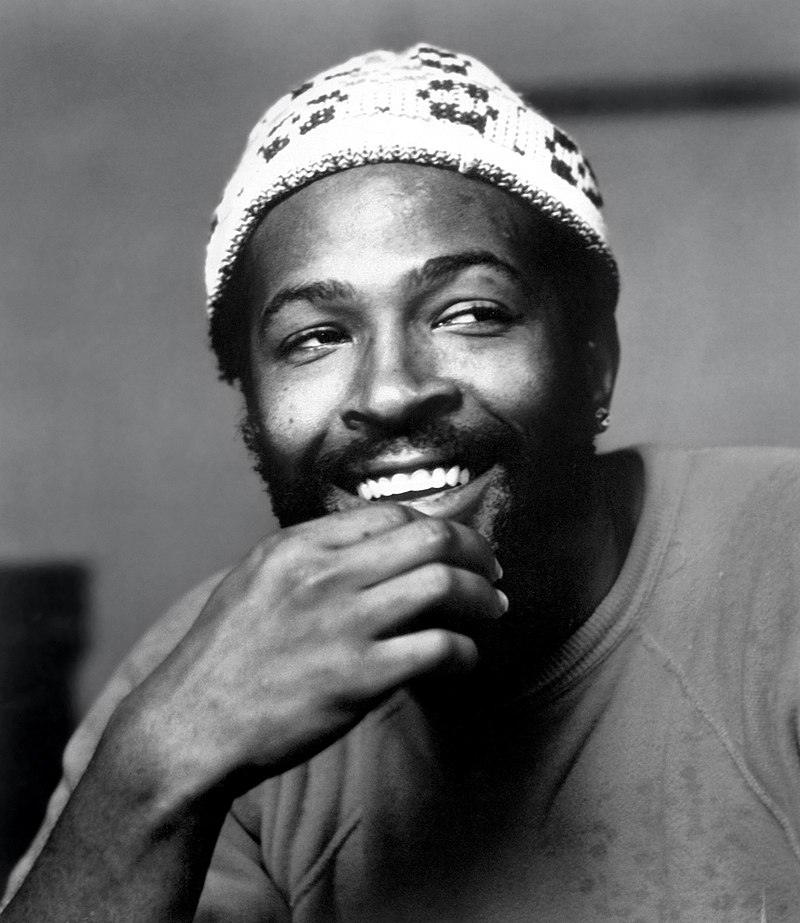
Detroit/Motown Soul 2
In 1960, Motown achieved its first major U.S. pop chart hit with "Shop Around" by the Miracles and began to define the Detroit/Motown sound. Written by Gordy and Smokey Robinson, the song also provides a hint of things to come with its memorable lyric hook, metaphor, and focus on simple, everyday human experience and emotion. The Miracles (later Smokey Robinson and the Miracles) became one of Motown's most successful groups, recording classics such as "You've Really Got a Hold on Me" (1963) and "The Tracks of My Tears" (1965).
The group's line-up (four male singers and one female singer) was unusual for Motown. Its sound was built around the distinctive falsetto A technique in which a mature male voice can reach notes of the soprano or alto range. This is not the same thing as a pure countertenor voice. In Falsetto, only the edges of the vocal cords vibrate as opposed to the whole length, and it is used by male voices to reach notes outside of their usual range. vocals of lead singer (and principal songwriter) William "Smokey" Robinson. Robinson's boyish good looks and natural charm also made him one of the company's first teen idols. Below is a 1964 live performance of "You've Really Got a Hold on Me":

Smokey Robinson & The miracles live - You really got a hold on me [ 00:00-00:00 ]
Gordy was also enamored of Phil Spector's "Wall of Sound"Created by Phil Spector, Wall of Sound is layers of electronic sounds used in production of pop and rock music. This effect is created by using electric and acoustic instruments at the same time, adding ensembles, and using an echo chamber. approach to production, and consequently, Motown recordings and Detroit soul in general-in contrast with those at Stax-tended to be highly dense, employing at various times up to three guitarists, two drummers, strings, horns, and back-up vocalists. Above all, Motown relied on a massive beat, with in-house producers such as Holland-Dozier-Holland (who will be discussed below) creating enormous composite sounds by layering handclaps, foot stamps, tambourine, and snare. While a backbeat was very much in evidence on the majority of Motown recordings, the difference in accents between beats one and three and beats two and four was much less than heard on most Southern soul recordings.
Finally, while all members of the integrated Stax Records house band had a background in rhythm and blues, the Motown house band, nicknamed the Funk Brothers, consisted mainly of Black jazz musicians (White guitarist Joe Messina being a notable exception). This band composition informed the kind of innovative parts crafted by musicians such as bassist James Jamerson. If you're interested in learning more about the Funk Brothers, watch the documentary "Standing in the Shadows of Motown trailer."

Standing in the Shadows of Motown trailer [ 00:00-00:00 ]
In 1961, the Marvelettes' recording "Please Mr. Postman " became Motown's first no. 1 on Billboard's Hot 100 Pop Singles chart. After that, the company began to establish itself as a significant force on the pop charts, with hits by artists such as The Miracles, The Marvelettes, Mary Wells, Martha and the Vandellas, Marvin Gaye, and "Little" Stevie Wonder, further defining Detroit/Motown soul as pop music.
Marvin Gaye joined Motown as a session drummer but quickly became a successful singer (with eight U.S. Top 40 hits during 1963 and 1964 alone) as Motown continued to forge a presence in pop charts. His gospel-tinged vocals offered ample evidence of his church upbringing. Stevie Wonder had a no. 1 U.S. pop chart hit in 1963 (at the age of thirteen) with "Fingertips - Pt 2" . A multi-instrumentalist child prodigy, Wonder developed his talents during the 1960s as he recorded hits for Motown, including "Uptight (Everything's Alright)" (1966) and "For Once in My Life" (1968).

Little Stevie Wonder - 1963 Fingertips Part II [ 00:00-00:00 ]
Long Walk to D.C.
It's a long walk to DC but I've got my walking shoes on
I can't take a plane, passer train, because my money ain't that long
America we believe, oh that you love us still
So people I'm gonna be under to wipe away my tears
A Change is Gonna Come
I was born by the river
In a little tent
Oh, and just like the river, I've been runnin'
Ever since
It's been a long
A long time comin', but I know
A change gon' come
Oh, yes it will







